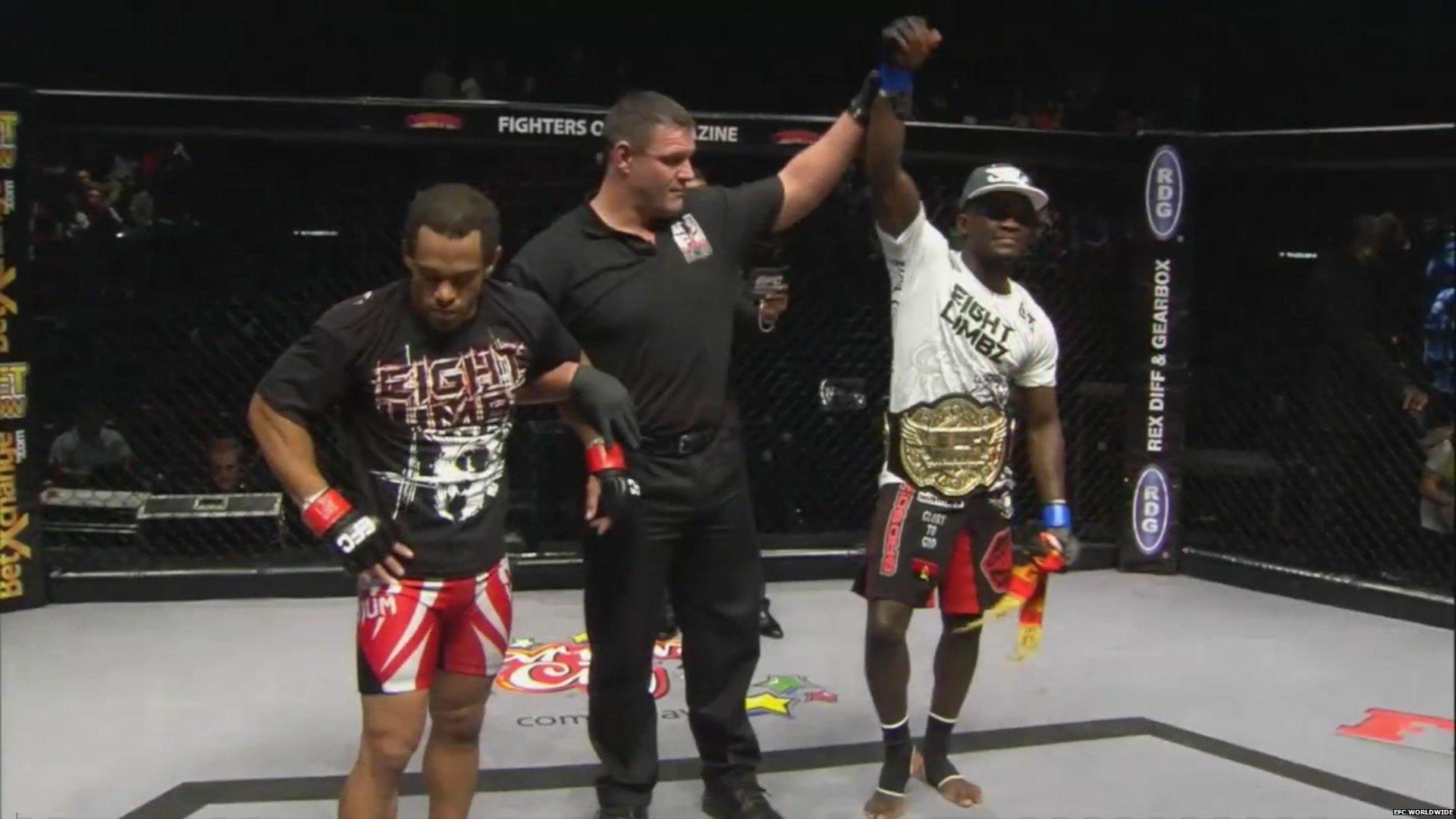Tai chi v MMA: The 20-second fight that left China reeling
- Published
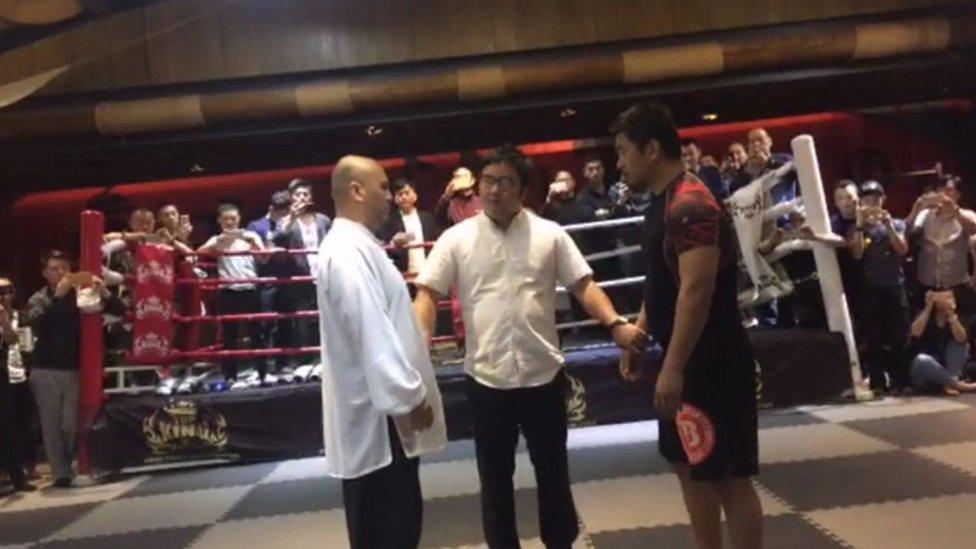
The brief fight has kept Chinese social media talking for weeks
A Chinese entrepreneur is offering a reward of $1.45m to anyone prepared to take on a top class fighter. It's the latest twist in the social media whirlwind surrounding one very brief but significant fight, as the BBC's Yashan Zhao explains.
Xu Xiaodong turned the Chinese martial arts community on its head two weeks ago with his highly controversial fight against Wei Lei, a master of the ancient art of tai chi.
The long-awaited showcase battle was intended to prove whether tai chi could really be a match for the modern, highly aggressive fighting discipline of Mixed Martial Arts (MMA).

The fight was brief
When weeks of planning came to reality, at a venue in Chengdu, Mr Xu soundly beat Wei Lei. The fight lasted only 20 seconds - Mr Xu says he had bested his opponent within seven seconds.
Millions of people have since watched video footage of the competition, and it has triggered a huge discussion in China on whether traditional martial arts - or wushu - can ever truly be effective in combat.
Tai chi - not just for the elderly
Tai chi is now associated by many with older people, who use the series of movements to improve posture and release stress and anxiety. They can often be seen in Chinese public parks in the morning, slowly stretching out their arms.
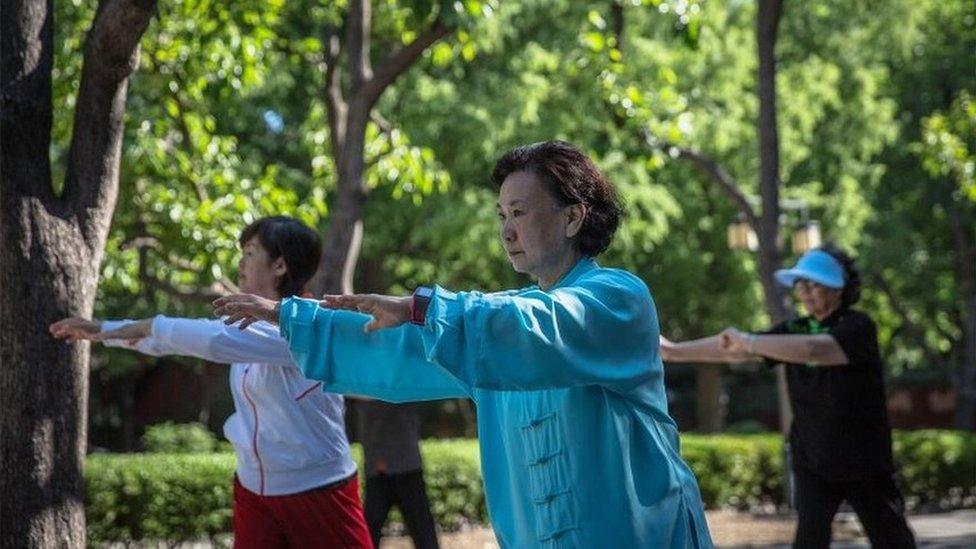
Tai Chi is an internal Chinese martial art practiced for both its defense training and its health benefits.
But it has been part of Chinese martial arts culture since the 16th Century. Films and TV dramas have historically portrayed martial arts masters as great heroes in conflict, with almost supernatural strength.
The 2006 film Fearless, for example, told the story of Huo Yuanjia, whose reported victories in bouts against foreigners helped Chinese people re-build confidence and restore pride in colonial times.
China's martial arts novelist Louis Cha Leung-yung (pen name Jin Yong) also portrayed heroic martial art heroes who could march through battlefields alone and unarmed to defeat thousands of invaders.

You might also be interested in:
On the rampage: The day my child was killed by an elephant
A bride without a wedding: Cancer patient fulfils her photoshoot dream
'Martyr of free speech': Blasphemy conviction divides a nation
Hobbyhorsing: The unusual sport girls in Finland love
But Mr Xu, who has studied traditional martial arts himself, claimed these stories were overblown, and that there was a lot of fraud and hypocrisy in martial arts industry.
He said his aim with the fight was to expose the fakes, and show that the old ways are no match for modern fighting methods.
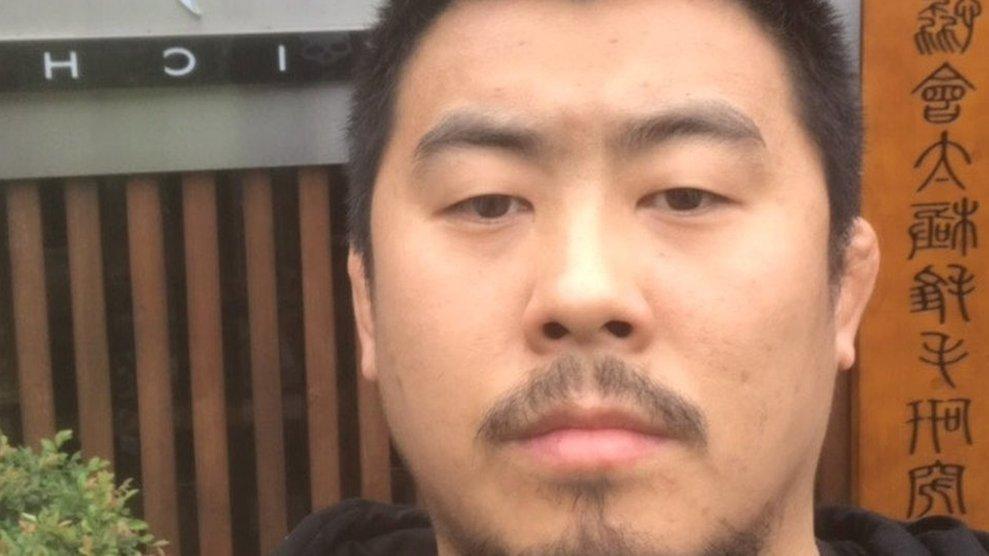
Xu Xiaodong said he wanted to expose fraud in the martial arts world
Some of his fans have been showing their support online. "I knew Chinese football industry was corrupt - now martial arts," said one.
But some have suggested Mr Xu has shamed Chinese martial arts culture.
Even billionaire Jack Ma, chairman of China's e-commerce giant Alibaba and a martial arts practitioner, spoke out in favour traditional form.
He said the point of martial arts was not so much the fighting as the philosophy and discipline behind it.
Cash for questions - and answers
Mr Xu has himself become an online celebrity and has been cashing in on his fame, making a fortune hosting Q&A session on microblogging site Weibo.
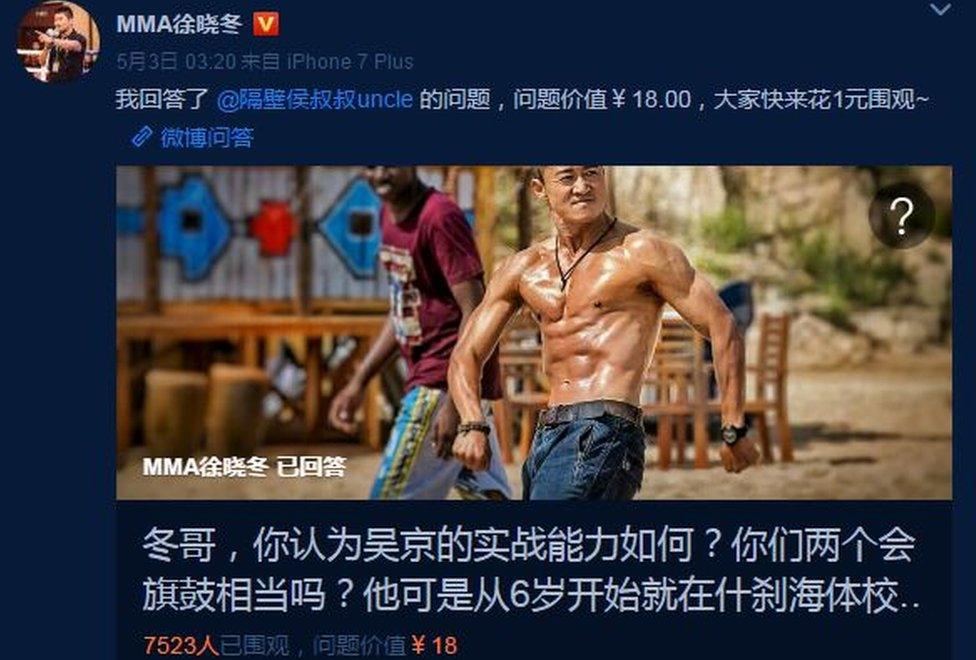
Xu Xiaodong makes a fortune on his Weibo account but it was blocked.
Viewers could pay him 1 RMB ($0.14; £0.11) to see his answers to questions like whether he thinks Wu Jing, external, a famed Chinese martial arts actor, has genuine battle skills.
From this question alone, Mr Xu made more than 7,500 RMB.
He has also been charging up to 18 RMB to ask him a question. On 3 May, he answered 19 questions.
But his money-making didn't last long, as his Weibo account, with more than 350,000 fans, was suddenly mysteriously blocked.
Mr Xu told BBC Chinese he doesn't know why.
Wake up martial arts dream
Supporters of traditional tai chi say one defeat doesn't mean much. And Mr Xu clearly agrees - he has challenged all of China's martial arts masters to a fight to further prove his point.
After China's martial arts association said this betrayed the ethics of the artform, a video appeared of Mr Xu apologising for being too arrogant. (He later refused to comment on the video in an interview with BBC Chinese.)
It might be a tempting offer though, because Xu Sheng, the multi-millionaire founder of drinks empire Tiandi No 1, has said on his Weibo account that is looking for martial arts heroes to volunteer to defeat Xu Xiaodong, with a total prize pot of 100m RMB ($1.45m; £1.13m)
The winners of five different bouts against him would each take home a reward of 1.5m RMB, he said, while the loser would pocket 500,000RMB.
Xu Sheng said he wanted to "wake the Chinese martial arts dream", and that he has been approached by many masters about the offer.
But there's no sign of another fight happening anytime soon - Xu Xiaodong has gone quiet, retreating to further study martial arts.
So it looks like the online battle between tai chi and MMA is not yet over.
Additional reporting by Jiangchuan Wu, BBC Chinese
- Published10 January 2017
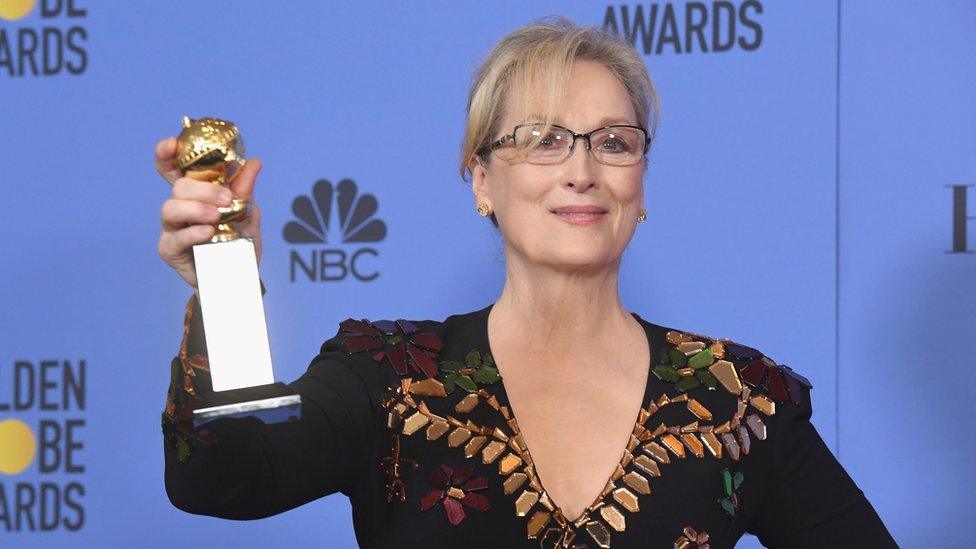
- Published14 July 2015
